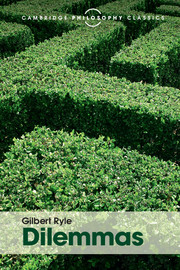Summary
How could anything be more familiar to us than seeing things, hearing things, smelling, tasting and touching things? We have our ordinary verbs of perceptual detection, discrimination and exploration under very good control long before we leave the nursery. Nor do we need to get much sophistication before we are pretty familiar with many of the more prevalent abnormalities of perception. We soon find out about seeing double, hearing the sounds of the sea in sea-shells, losing the senses of smell and taste; about rainbows, reflections and echoes; about magnifying glasses, mirrors and megaphones. We soon get the notions of blindness, deafness, numbness; of long sight, short sight and dazzlement; and having learned that these are connected with interference, damage or deficiency in the appropriate sense organs, we are not surprised to find that spectacles make differences to what we see, but not to what we hear or taste, or that it is for the medical profession to find the causes of personal defects of perception and the remedies for them.
At the start we say and follow things said with verbs of perception where we are not yet talking about perceiving but about the things that we perceive or fail to perceive. At a later stage we learn, for example, to tell the oculist or ear-doctor the things that he wants to know, not facts about the clock we hear ticking or about the birds we see on the lawn, but facts about the way they sound and look to us. Already used to the idea that sometimes things are not as they look or sound to be, we soon get interested in such questions as why the distant bat sounds as if it strikes the ball quite a long time after it does strike, why the note of the engine's whistle drops as it passes us, and what makes the mountains look much nearer on some days than on others. We begin to talk about the conditions governing different classes of sights, felt temperatures and heard sounds.
There are hosts of notorious generalities about the limitations and fallibilities of our senses.
- Type
- Chapter
- Information
- DilemmasThe Tarner Lectures 1953, pp. 79 - 94Publisher: Cambridge University PressPrint publication year: 2015



